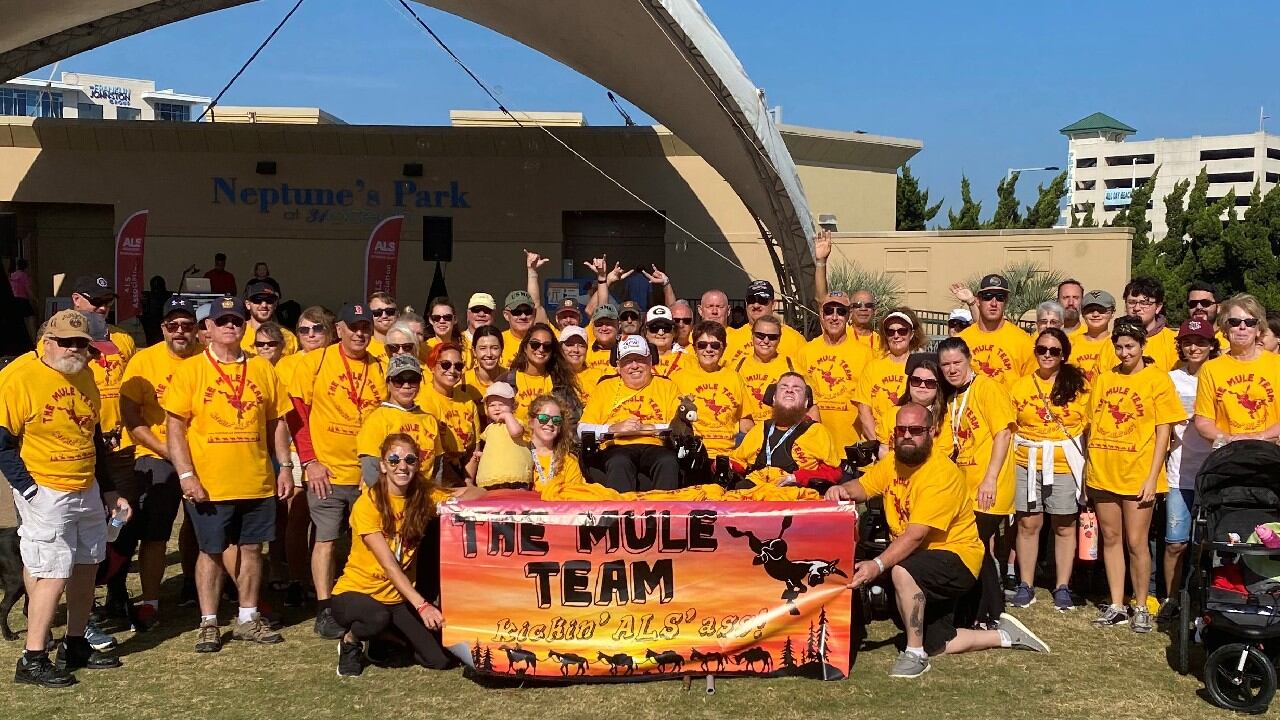During my 41 years of military service, one leadership phrase resonated with me as I progressed in rank and responsibility: “we convey through our actions that which is important.”
As a cancer survivor, I am a beneficiary of our past leaders who, in 1971, took action and declared war on cancer by enacting the National Cancer Act. In introducing this bill, Sen. Peter Dominick, R-Colo., noted: “there is a growing consensus that our vast scientific and technological resources should promptly be marshaled in an unprecedented attack on this devastating disease.” Today, the investments and innovations spurred by that law have saved millions of lives.
Now, as a veteran with ALS, I am heartened to see a similar sense of purpose among our leaders. ALS’ 100 percent fatality rate and fast progression (average lifespan from diagnosis is 2-5 years) demand action. ALS’ hugely disproportionate impact on military veterans demands that our leaders fight to honor the sacrifices made by our serving members, veterans, and military families. And it’s a full-scale war we need.
Six months ago, I was advising military leaders on national strategy and policy to protect our nation. Today, I cannot read a children’s book to my grandson. ALS eventually paralyzes every limb and every muscle in the body. It strips away the ability to eat, drink, speak, swallow, and breathe. Death for ALS patients usually comes in the form of respiratory failure, often after loss of all ability to move or speak. Our bodies will become our own coffins. This is the price I will pay for my service.
But our leaders are now rising to the challenge. On December 23, 2021, fifty years to the day after President Richard Nixon signed the National Cancer Act into law, President Joe Biden signed the bipartisan “ACT for ALS.” The timing of this new law coincides with big changes in the science of ALS. For the first time ever, there are promising ALS therapies in clinical trials. ACT for ALS will help veterans and non-veterans alike access those therapies.
RELATED

The ALS community owes a special debt of gratitude to the president and to the members of the House and Senate who voted for this bill, proving with their actions that they believe our lives are important. This process was bipartisan in a time of deep division. Members showed courage and conviction in bringing this bill to the president’s desk.
Senators Chris Coons, D-Del., and Lisa Murkowski, R-AK, and Representatives Jeff Fortenberry, R-Neb., and Mike Quigley, D-Ill., worked tirelessly for eighteen months to move this bill.
The Senate whips, who by custom seldom co-sponsor legislation, stepped forward for the ALS community: John Thune, R-S.D., and Dick Durbin, D-Ill., signed onto this bill to fight for us. In the House, Appropriations Committee Chair Rosa DeLauro, D-Conn., gave our community the first opportunity to speak amidst the pandemic. Energy & Commerce Health Subcommittee Chair Anna Eshoo, D-Calif., then held a full-day hearing, giving voice to the voiceless, then asking her committee colleagues, “Does anyone dare vote no?” No one dared. Energy & Commerce Committee Chair Frank Pallone, D-N.J., then moved the bill to the House floor.
Many leaders on the Veterans Affairs Committees carried veterans with ALS on their backs. Julia Brownley, D-Calif., House Veterans Health Subcommittee Chair, sponsored the bill in its first iteration, back when it was H.R. 7071. Elaine Luria, D-Va., Chair of the Subcommittee on Disability Assistance and Memorial Affairs, was the first VA Committee leader to sponsor ACT for ALS. In fighting for disabled veterans, and all ALS patients, she exemplified the core values of honor, courage, and commitment that guided her service in the Navy. Senate VA Committee leaders Senators John Tester, D-Mont., and Jerry Moran, R-Kan., cosponsored the bill, something committee chairs and ranking members seldom do.
In times of crisis, leaders lead. They did. Remember their names.
As with our nation’s war on cancer, ALS requires bipartisan collaboration and commitment, long-term vision, wise investments in the future, creativity, and a fighting spirit. Fifty years after our leaders threw down the gauntlet on cancer, they have once again marshaled an attack on a devastating disease. For this leadership, they have the gratitude of thousands of current military families — and many tens of thousands to come with future ALS diagnoses.
Kevin Robinson is a retired Navy captain who served 41 years on active duty. He is a member of Military Officers Association of America. In July 2021, he was diagnosed with bulbar onset ALS.
Editor’s note: This is an op-ed and as such, the opinions expressed are those of the author. If you would like to respond, or have an editorial of your own you would like to submit, please contact Military Times managing editor Howard Altman, haltman@militarytimes.com.




